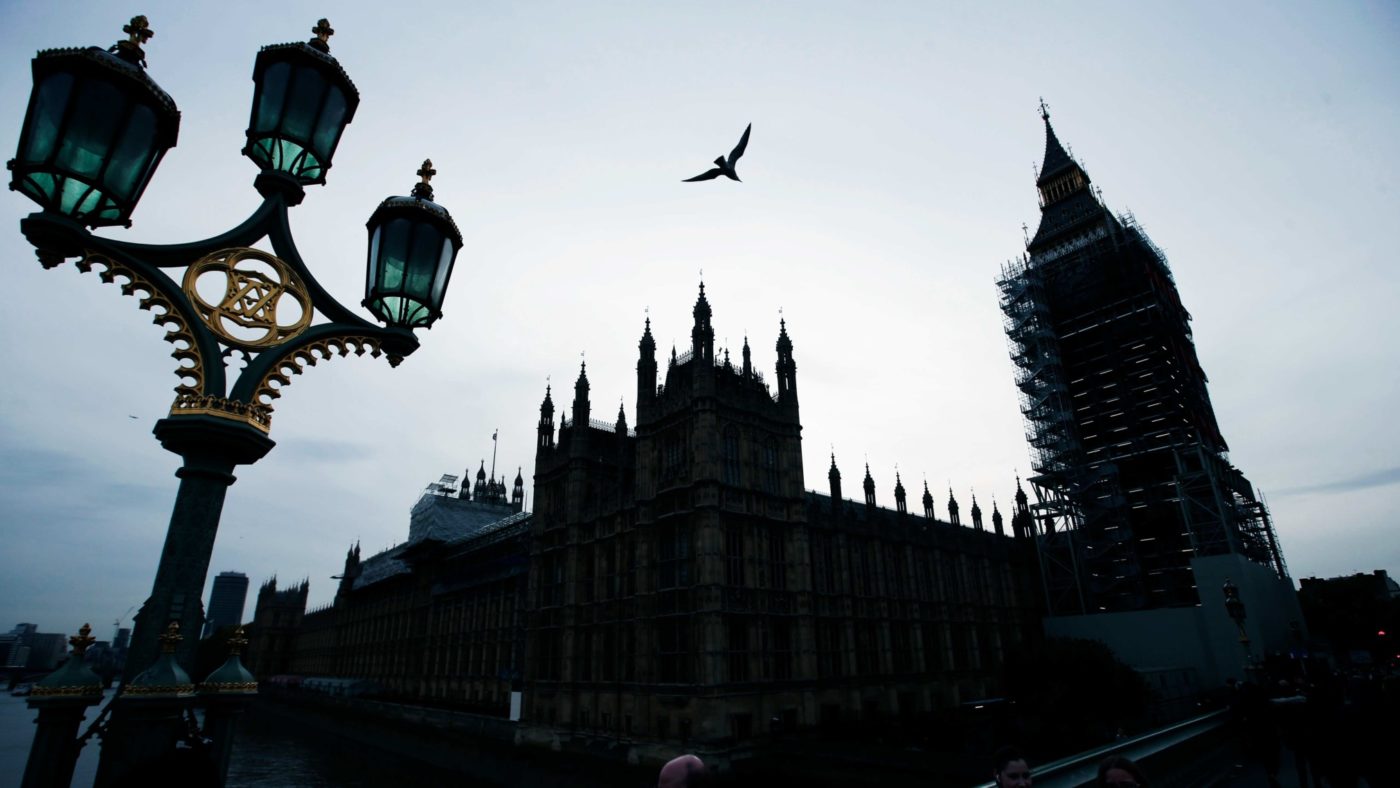A Conservative ministry riven by division and discord over Europe, mired in sleaze, and led by a Prime Minister who may be in office but does not seem to be in power. Haven’t we seen this movie before? No wonder comparisons with the fag-end of John Major’s government are in vogue. Let’s party like it’s 1996 all over again.
There are many things that can be said about this fashionable view, the first and most pressing of which is that it seems deplorably unfair on John Major. By the time he entered Downing Street, the Tories had already been in power for over a decade. More pertinently, he fought and actually won an election.
Moreover, the sleaze stories which did such damage to his party’s reputation were, viewed from our current perspective, mostly heart-warming tales of hypocrisy and common or garden infidelity. They involved love-rats, not sex-pests even though, heaven knows, sex-pestery cannot have been less common a quarter of a century ago. Different times, even if the behaviour embarrassing so many male politicians now was not, in point of fact, acceptable back then either.
Major must, I suppose, look at Brexit as the Triumph of the Bastards. Bill Cash may grind slowly, but he grinds exceedingly well and if that means that four consecutive Conservative prime ministers will have their careers stained or terminated by European matters then so be it. It is a price worth paying for the green shoots of national liberation.
Like Major, Theresa May limps on, pluckily doing her best to convince the public her heart remains enthused by the job she has even though to all outward appearances she seems to hate it. When authority melts it does so swiftly and past experience suggests it can never be recaptured. Barring some remarkable turnaround, Mrs May’s best days are gone. She has lost her cabinet, her parliamentary party, and, I fear, the public.
The novelist Robert Harris put it well: “This administration, not yet five months old, already has a whiff of decay about it.” Sexual predation – of one degree of seriousness or another – is hardly limited to the Tory benches, of course, but it is axiomatic that such scandals – and this is a real one – damage the governing party more thoroughly than they stain the opposition. They may all be at it, but only one party is charged with running the country.
Even so, there are more reasons for Tory despair than panic right now. The government has not yet shown any ability to articulate a coherent post-Brexit vision or even what it seeks to achieve from the Brexit negotiations. And yet for all the sense of things falling apart at Westminster, the opinion polls remain remarkably consistent. The Conservatives and Labour each command the support of approximately 40 per cent of voters.
This reflects both the cementing power of a deep partisanship and the inadequacy of both parties. Theresa May cannot rout Jeremy Corbyn and, at least for the time being, Jeremy Corbyn cannot rout Theresa May. This is a faintly damning verdict on both of them.
The contrast with the Major years could hardly be more marked. Well before the 1997 election is was clear Tony Blair was going to become Prime Minister. The country thirsted for change and in mid-1996 Labour routinely enjoyed a 30-point lead in the opinion polls. There was, of course, a narrowing as the election drew closer but the general shape of things to come was always clear. The Tories were stale and tired; Labour seemed to promise a fresh and youthful start. As the D:Ream song promised, “Things Can Always Get Better” and many voters, including plenty voting Labour for the first time, were inclined to think this might actually be true. This despite the fact the economy had recovered from recession and was growing at a healthy clip.
Economic competence seemed as baked-in then as economic insecurity and discontent does now. In those circumstances, we can accept that May’s declining popularity is hardly surprising. A fear of a fresh election may be one of the few things holding the government (just about) together and thus preserving May in office but it remains the case that Labour’s inability to open a commanding lead in the opinion polls is just as revealing as the Prime Minister’s abundant weakness. Then again, Jeremy Corbyn is no Tony Blair.
Hence the palpable discontent evident all across the country. The public is no more enthused by the opposition than it is by the governing party. Salvation, or even modest improvement, does not appear imminent. The public, after all, has already had a good look at Corbyn and decided he should not be trusted with power. He lost an election to Theresa May, for heaven’s sake.
Gloom and gloomier, then. Brexit exhausts the government, consuming all its bandwidth without ever actually loading the page. Scandal lies thick as fog around the Palace of Westminster. The governing party is at war with itself. The economy chunters along but productivity and wage-growth remain elusive. And despite all this, the opposition promises nothing obviously better or more attractive. Britain has a government it does not like and it does not like any of the alternatives either. This is where we are; stuck without the prospect of movement any time soon.
Things, as the song doesn’t go, can always get worse.


